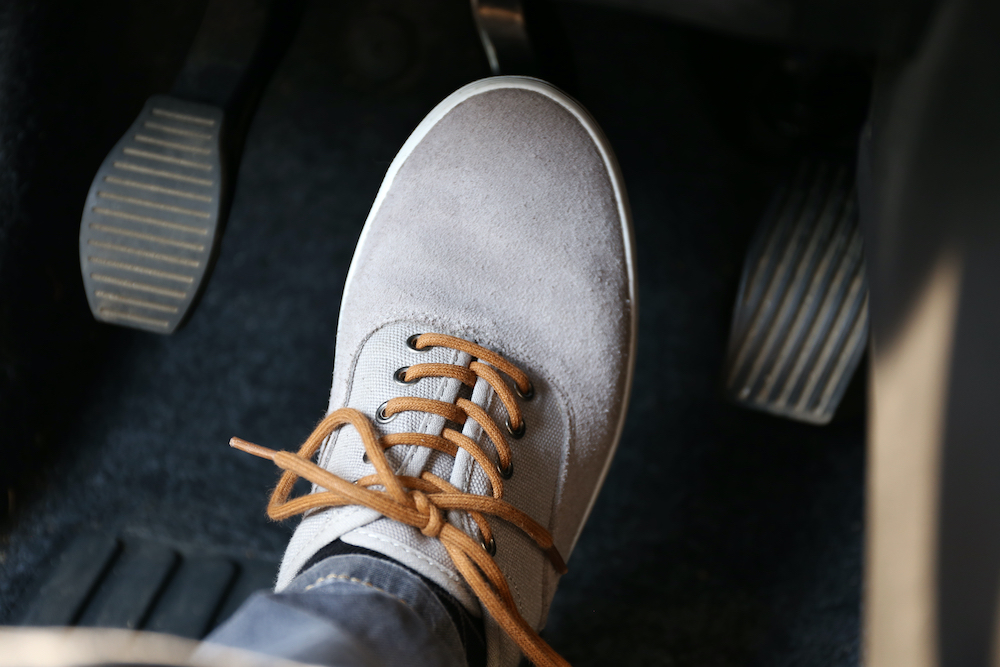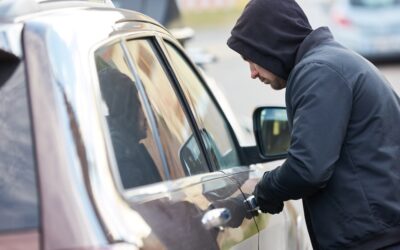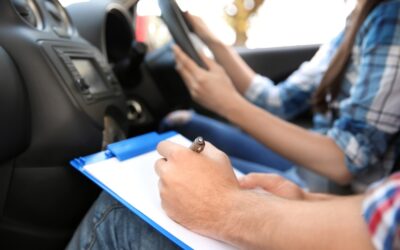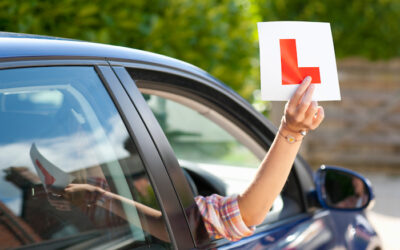You may get this question on your driving theory test:
When Will You Feel the Effects of Engine Braking?
The four possible answers will look something like this:
- When you shift to a lower gear.
- When you shift to a higher gear.
- While you’re in neutral.
- When you only use the handbrake.
The answer?
It’s option a: you will feel the effects of engine braking when you shift to a lower gear.
What is Engine Braking?
Engine braking is when you use your gears to help slow down your vehicle, as opposed to your breaks. By going down into a lower gear, you will slightly slow down your car without using the brakes. Engine braking is often used when moving into a lower speed limit area or on the approach to a junction.
How Does Engine Braking Work?
To best understand engine braking, think of how an engine works. When you push down on the accelerator, you fire up your engine, driving all of its moving parts into action. Engine braking begins when you take your foot off the accelerator.
Due to the effects of friction and compression, engines are naturally resistant to turning. Friction in the drive train, combined with a general lack of air in your system, will cause your car to slow from the moment you take your foot off the accelerator. We call this process engine braking.
If you drive a manual car, you can increase the effects of engine braking by shifting to a lower gear. This will force your engine to turn faster, which will increase the levels of resistance throughout the drive train. In turn, this will slow your car.
The Benefits of Engine Braking
All drivers rely on engine braking from time to time, whether they realise it or not. Yet there are some situations where consciously relying on engine braking can give you more control behind the wheel:
- When driving downhill. Switch to a lower gear when driving downhill and you’ll find it much easier to keep your car’s speed in check. You’ll have more control than you would if you relied solely on your manual brakes. Meanwhile, the effects of engine braking will prevent your car from building up too much momentum due to gravity.
- When driving on snow or ice. If you rely too much on your manual brakes while driving on snow or ice, you could lose some traction. This could cause you to skid. Engine braking, on the other hand, brings your car to a much more gradual stop. You’ll have much more control this way, and you’ll be much less likely to slip and slide.
So engine braking can give you more control when driving in certain treacherous conditions. Another major benefit of engine braking is that it reduces the wear and tear on your brake pads.
Is Engine Braking More Eco-Friendly?
Strategic use of engine braking can even boost your fuel economy! For example, if you’re approaching some red lights with no cars ahead, you apply your brakes and come to a sudden stop. But if you just ease off the accelerator and rely on engine braking, you can bring your car to a more gradual stop.
If the lights change while you’re slowing, you can simply apply the accelerator again. You’ll use a lot less fuel this way than you would with a complete stop.
Is Engine Braking Safe?
As we suggested above, engine braking is a natural process in the engine. It won’t in itself damage your car. But if you rely too much on gear shifts to slow your car, you could in time increase the wear of your clutch plates.
Another thing to consider, especially if you’re a nervous or inexperienced driver: shifting to a lower gear to slow your car involves taking one hand off your wheel. In some cases, this could give you less control of a situation, not more!
But again, most drivers rely on engine braking from time to time, whether they realise it or not. Engine braking might sound like a complicated process, but don’t worry too much about how it works. As we saw above, the theory test won’t ask you to explain the process. It will simply ask you to specify when you might feel the process taking place.
Ready to Take Your Test?
If you’re preparing for your driving test, then the old adage is true: practice makes perfect!
Get as much experience behind the wheel as you can. You can drive outside of lessons so long as you have a car to drive in, a suitable person to supervise you, and valid car insurance.
We offer provisional driver insurance at a price you can afford. With our cover, you can build up your confidence behind the wheel with total peace of mind that you’ll be covered, no matter what happens. Get in touch for a free quote.





